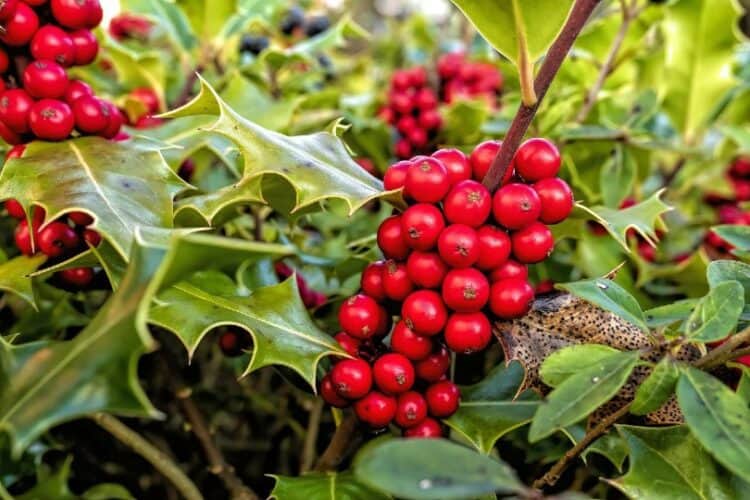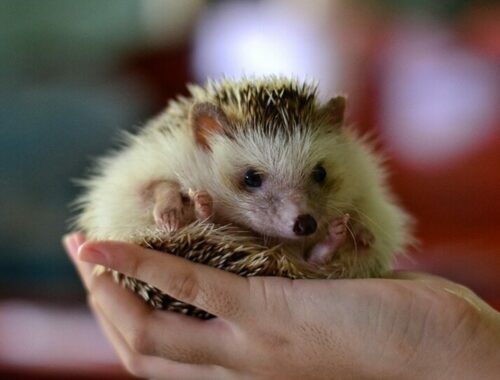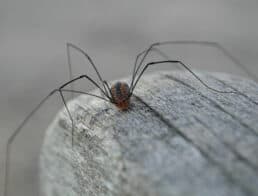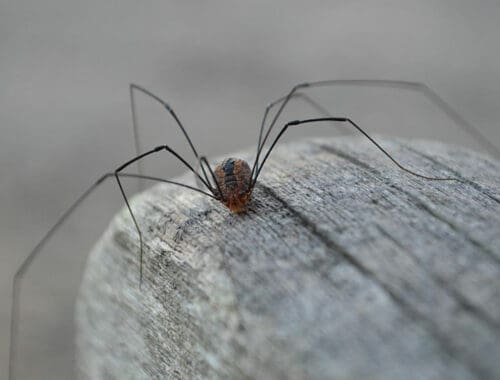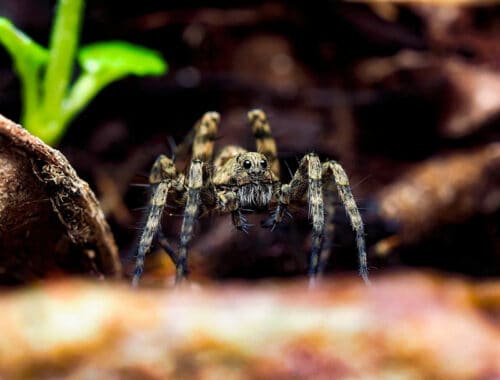Plants are a popular decoration for the holidays in the west, but many plants, including holly berries, are poisonous to your dogs. If you’re going to keep holly berries as part of your Christmas decorations this year, make sure they’re out of reach of your pets, as they’re highly toxic to dogs and cats. Here’s what you need to know about holly berries and other Christmas plants to keep your dog safe during the festive season.
Holly: Is It Poisonous to Dogs?
All parts of the holly plant are poisonous when ingested by dogs. They have one of the highest toxicity levels for dogs regarding holiday plants. So, keep that in mind when you choose to decorate your home with it.
Symptoms of holly poisoning in dogs include gastrointestinal upset, usually displayed as vomiting and diarrhea, excessive drooling, and abdominal pain. The vomiting and diarrhea can cause your dog to become dehydrated, and death can occur in severe cases of toxicity.
If you suspect that your dog has ingested holly, get them veterinary attention immediately. These plants are highly toxic to dogs and can be deadly without veterinary intervention.
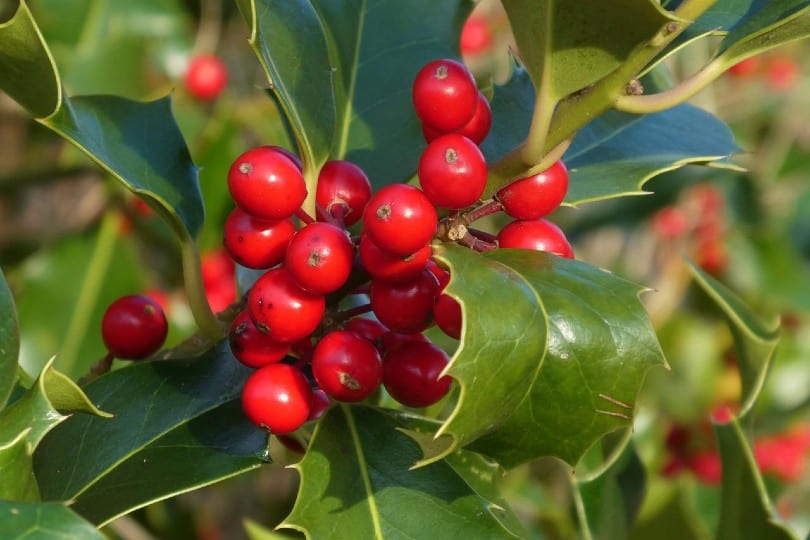
Mistletoe
While it might be tempting to have that kiss under the mistletoe, this plant is highly toxic to dogs and cats. Mistletoe contains pharatoxin viscumin, toxalbumin, lectins, and phoratoxins. Ingestion of mistletoe is hazardous for dogs, and this plant should be kept well out of your dog’s reach if you intend to keep it as part of your Christmas decorations.
Symptoms of mistletoe poisoning in dogs include gastrointestinal upset, drooling, and abdominal pain. Severe cases of toxicity may result in seizures or death. Mistletoe poisoning is a painful condition for dogs, and you should get your dog medical attention if you suspect they’ve ingested mistletoe; not doing so may be deadly.
Poinsettia
Poinsettias have beautiful, colorful blooms that will capture the heart of just about anyone. While poinsettias are not as dangerous to dogs as holly or mistletoe, they’re still toxic for them and should be kept well out of reach of any curious puppies.
The brightly colored leaves contain a sap that irritates the tissues of the mouth and esophagus. If the leaves are ingested, they can cause nausea and vomiting, but toxicity requires a much higher rate of ingestion than in the case of holly or mistletoe. However, severe cases of toxicity can occur, and in these cases, seizures and death are common.
More concerning than just the toxicity of leaves is the risk that the leaves have been treated with a pesticide to protect them from vermin while they wait to be brought home. These pesticides can be highly toxic to your pets; they are poisons!
Young animals—and even small children—can be at risk of poinsettia poisoning. So keep these away from any wandering hands or paws. If you suspect that your child or pet has ingested poinsettias, get them medical attention immediately.
Amaryllis (Belladonna)
While the Amaryllis plants are stunning, they’re highly toxic to pets. The bulb of the Amaryllis plant is the most poisonous part of the plant, even more so than the flowers or stalks. The Amaryllis plant contains toxins like lycorine that can cause hypersalivation, gastrointestinal upset (vomiting, diarrhea, abdominal pain, or decreased appetite), lethargy, and tremors.
The Amaryllis plant has many names, including Belladonna, Saint Joseph Lily, Cape Belladonna, and Naked Lady. This plant should be kept out of the house if you have pets that might get into it.

Christmas Cactus
While it might seem like all the plants we associate with Christmas are toxic, Christmas Cactus is non-toxic for dogs. Neither the Christmas Cactus nor its cousin, the Easter Cactus, pose a significant risk to your pets. So, they’re a safe bet for any pet parents with curious pets.
While the Christmas Cactus may not be significantly toxic to dogs, the plant contains too much fiber to be a healthy addition to your dog’s diet. Ingestion of the plant may cause some gastrointestinal upset like vomiting or diarrhea, but the plant does not carry a risk of deadly toxicity.
The Christmas Cactus’s spines are more dangerous to dogs and cats than the toxicity. Curious pets may get pricked by this cute plant while investigating it.
Conclusion
While you might be used to adorning your home with beautiful plants for Christmas, these can pose a risk to your furry friends. So, choose your plants wisely and ensure that any dangerous plants are kept out of reach of any curious furry companions.
If you suspect that your dog has ingested something toxic, get them medical attention immediately to ensure the best health outcomes.
- Related Read: How to Dog-Proof a Christmas Tree – 7 Vet Approved Tips
Featured Image Credit: Pixabay
